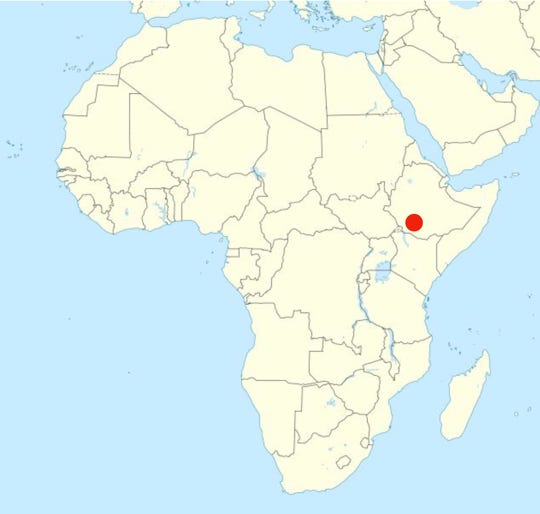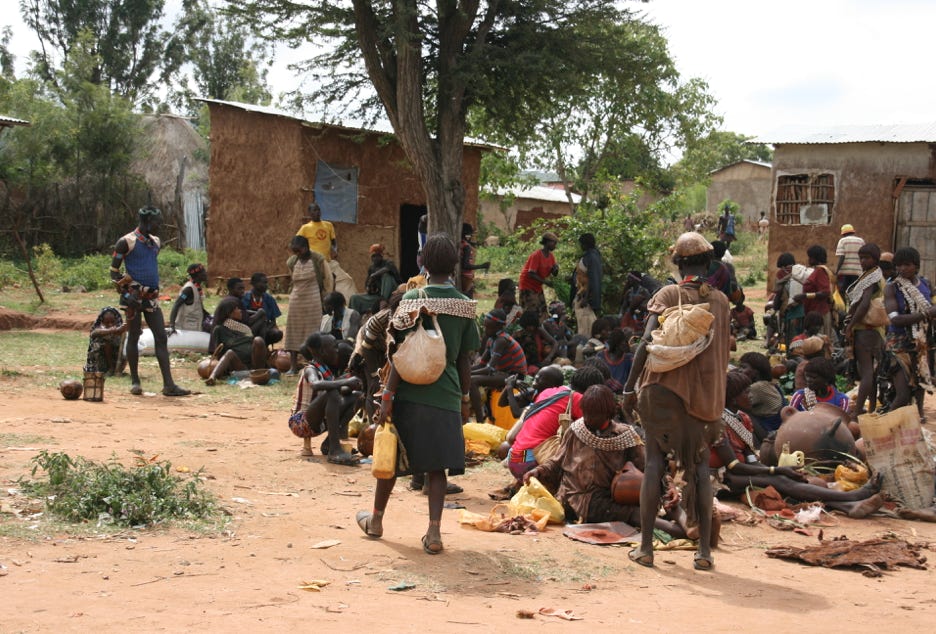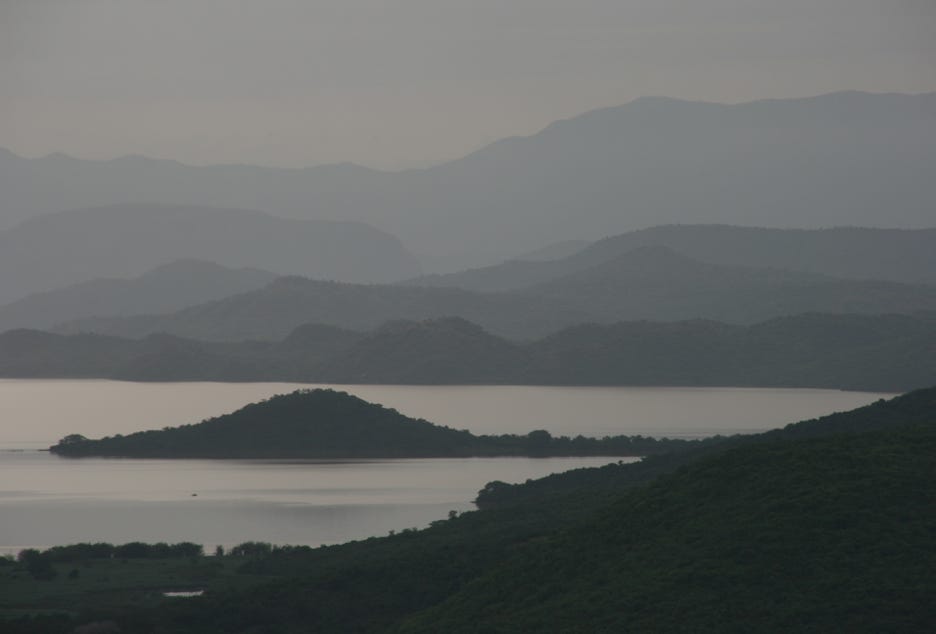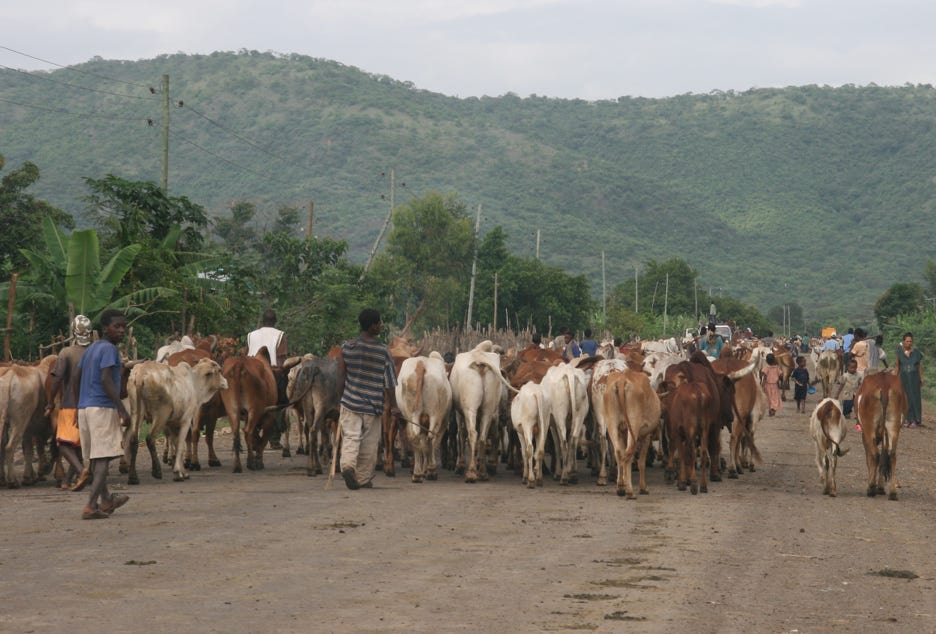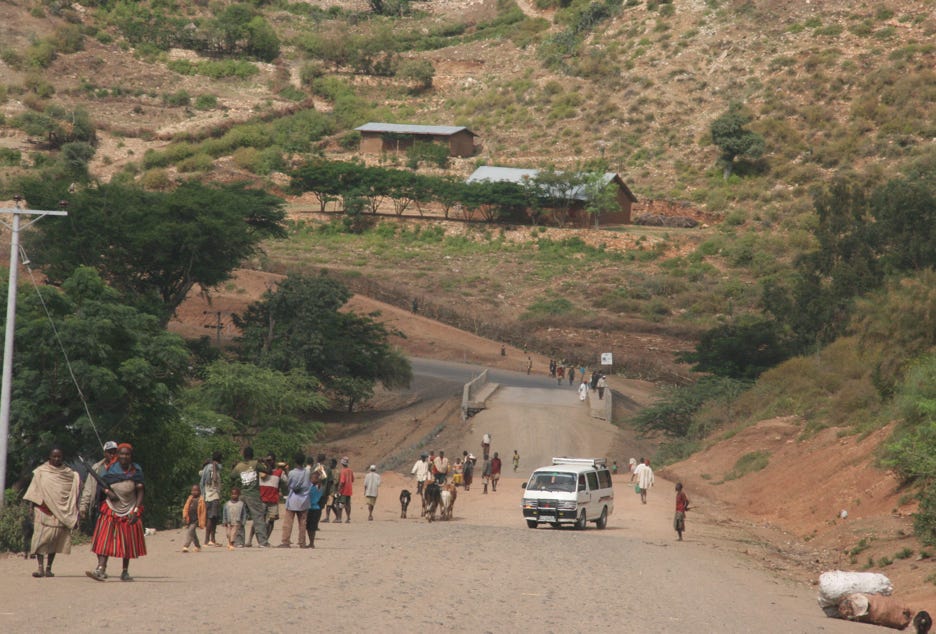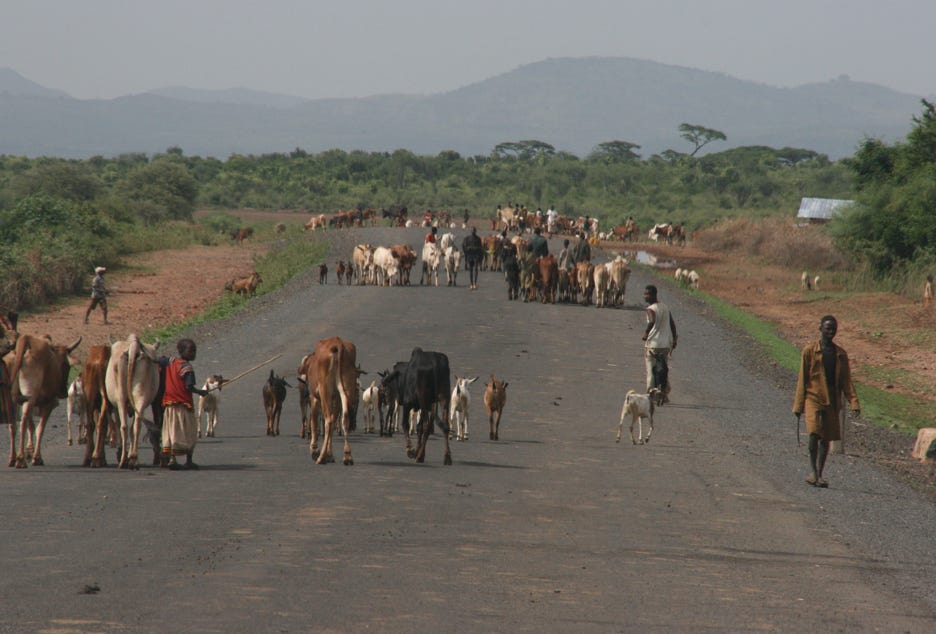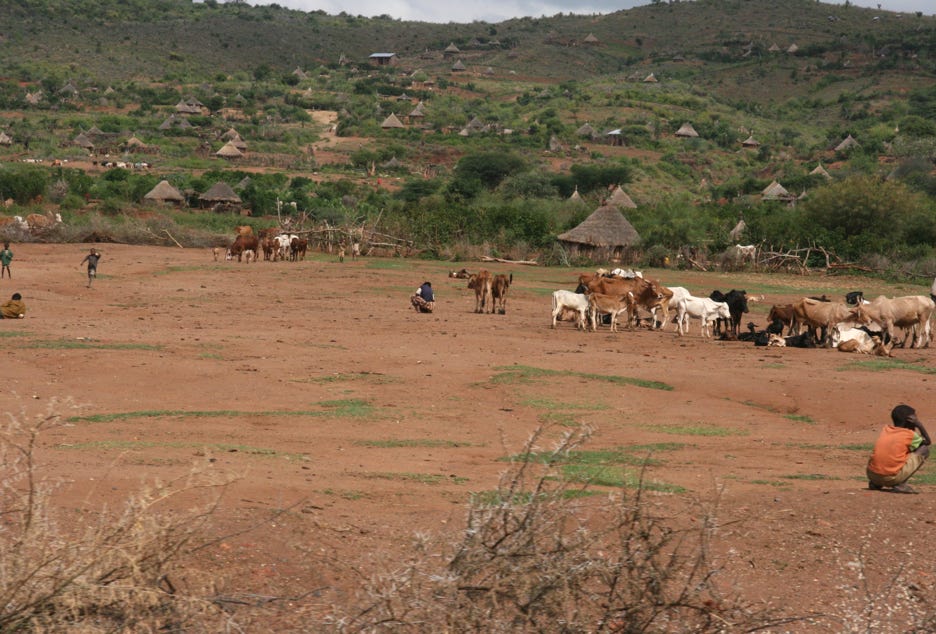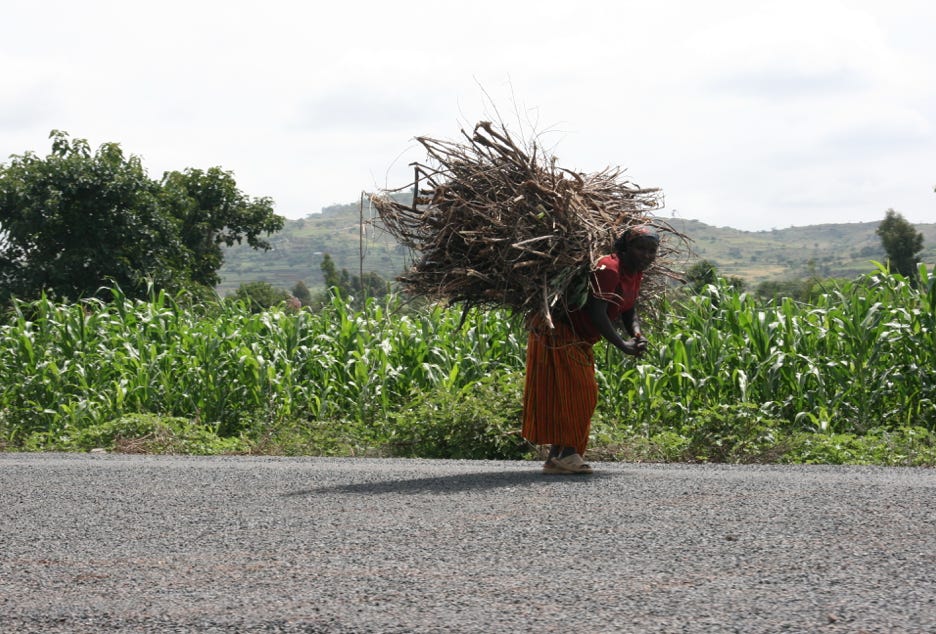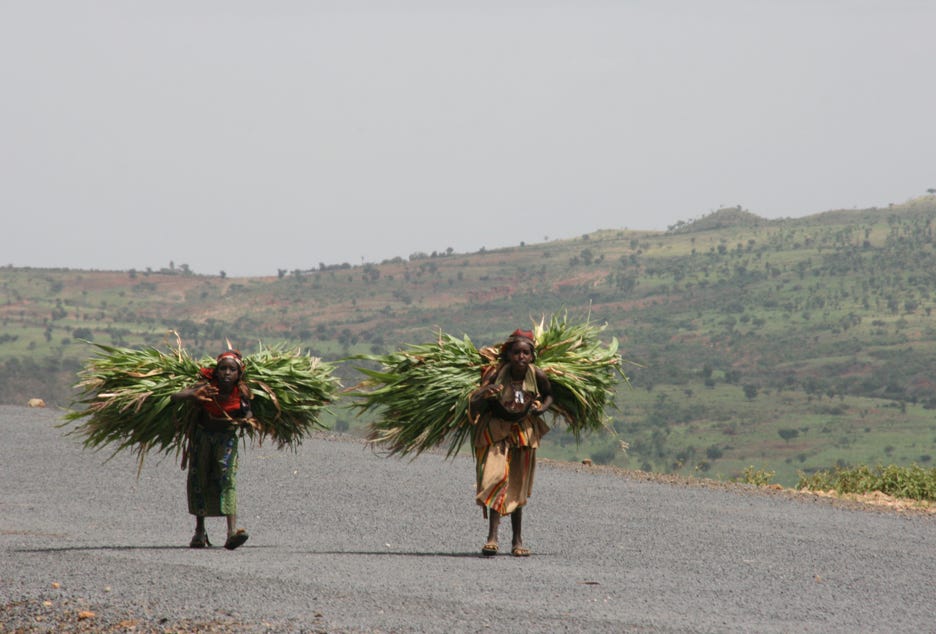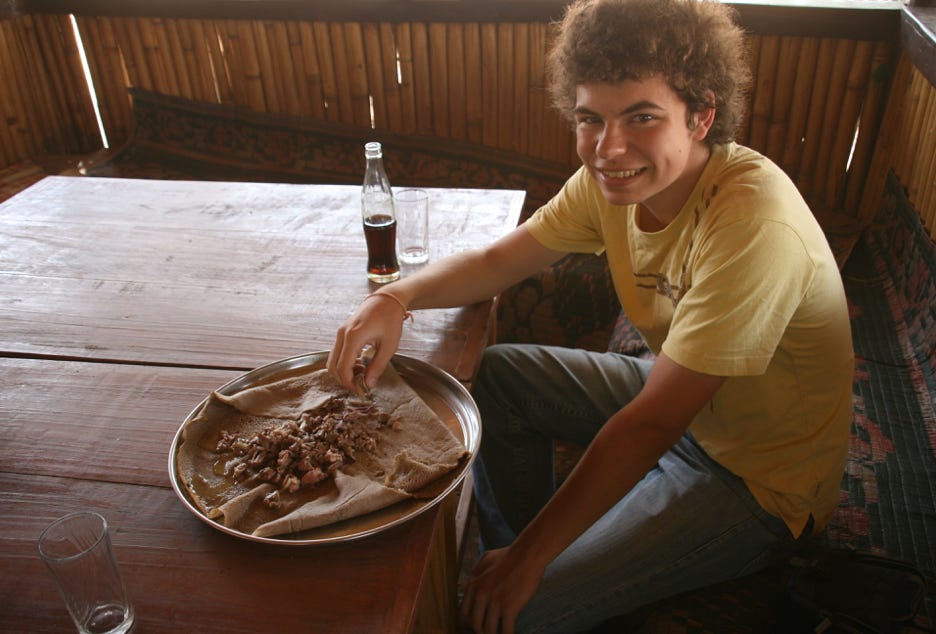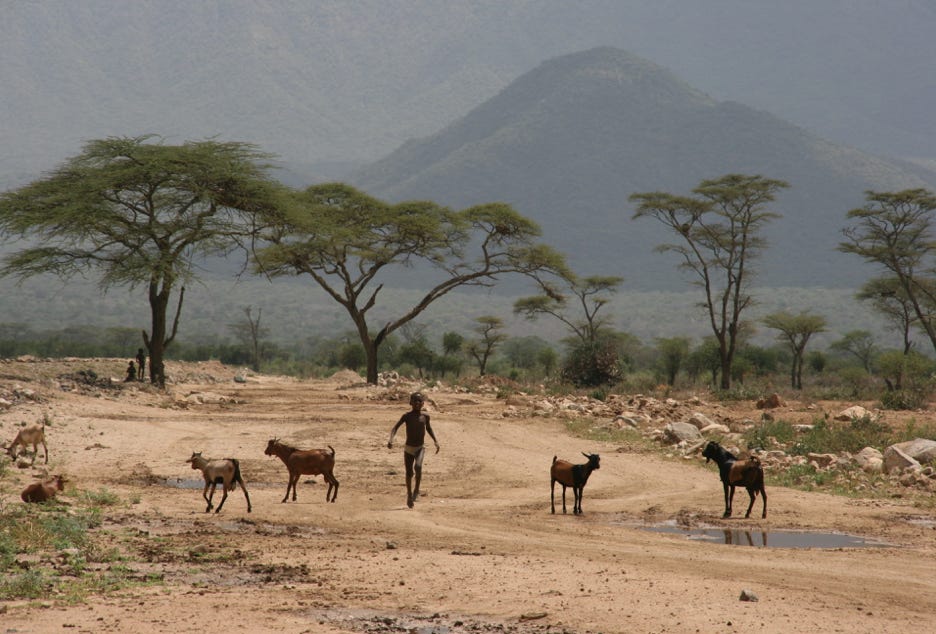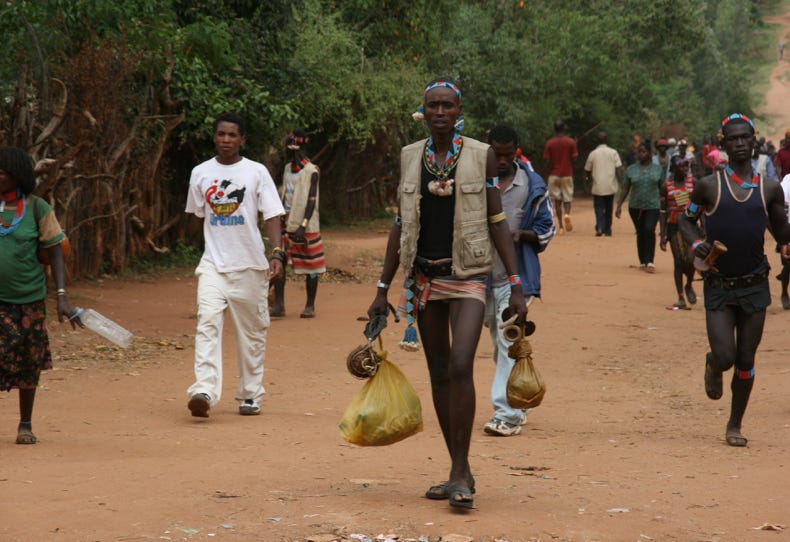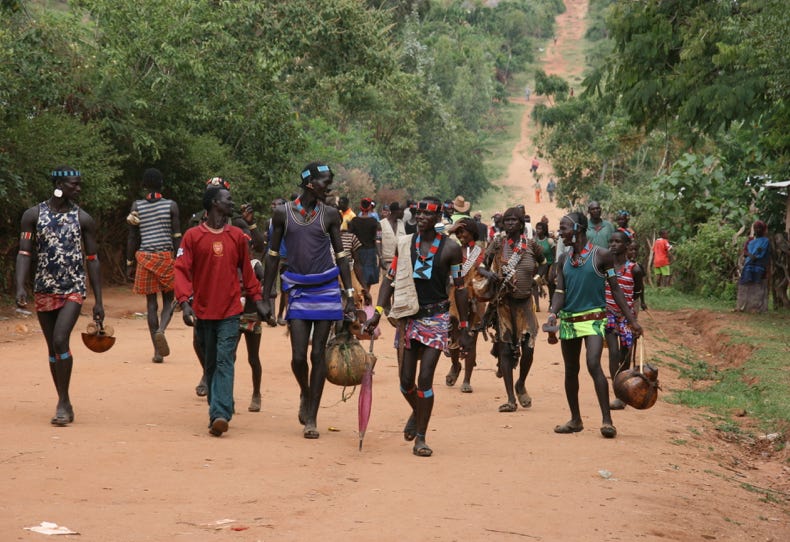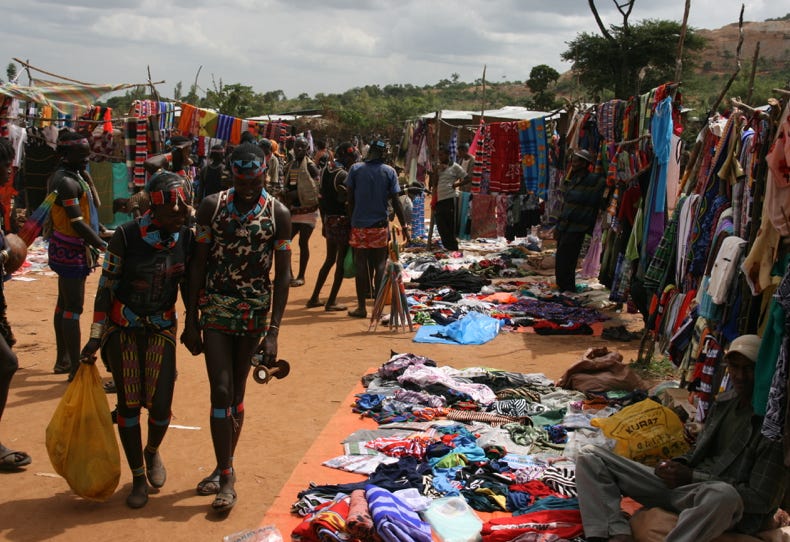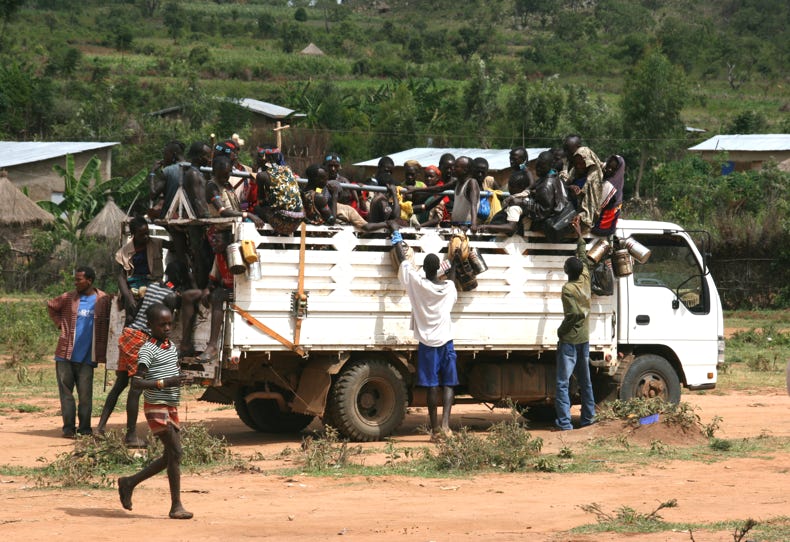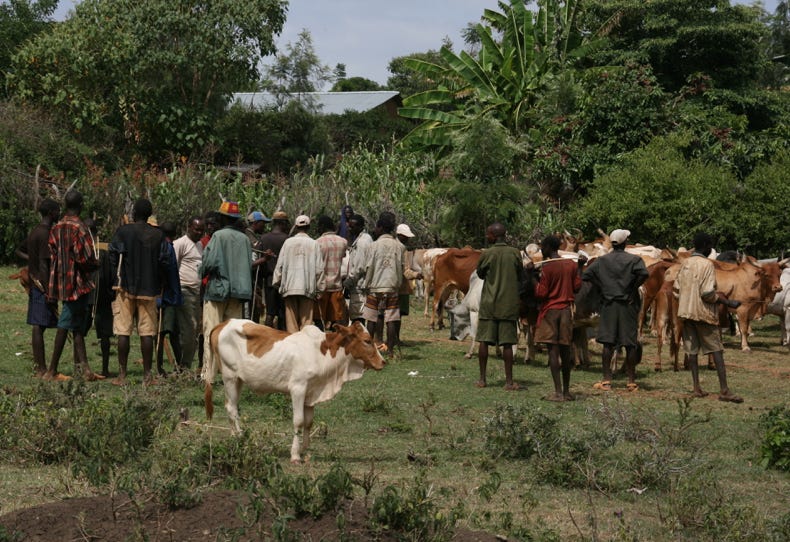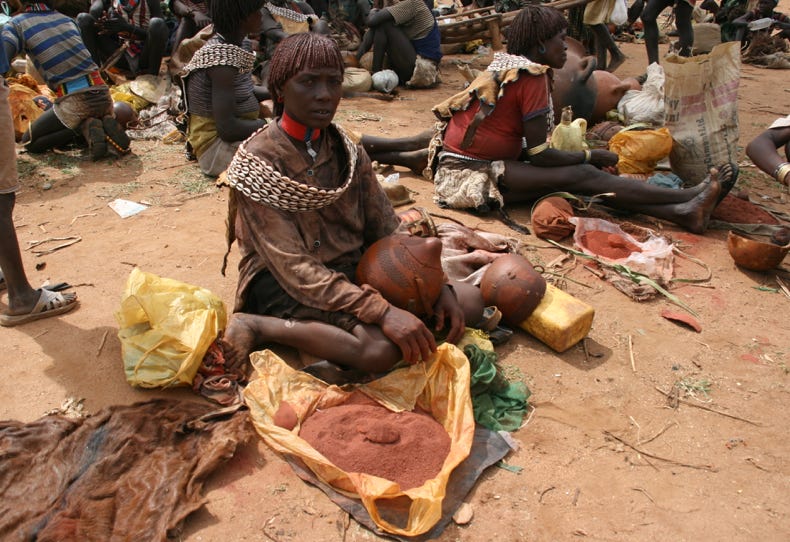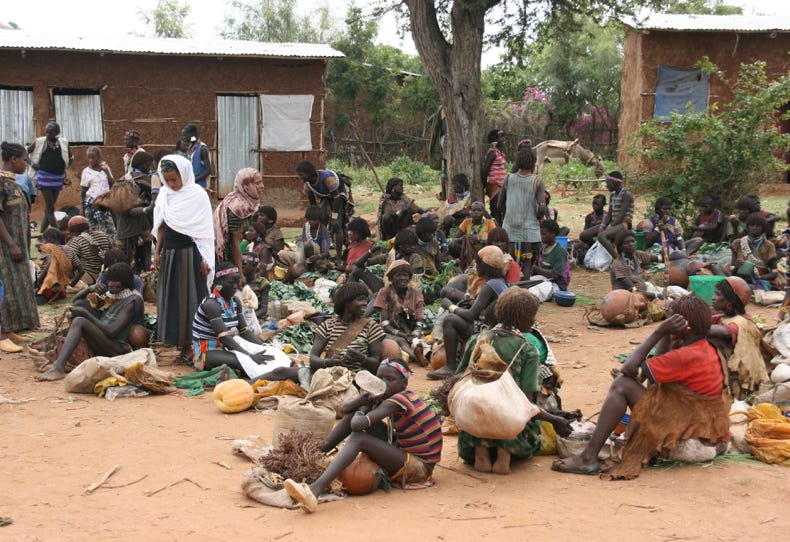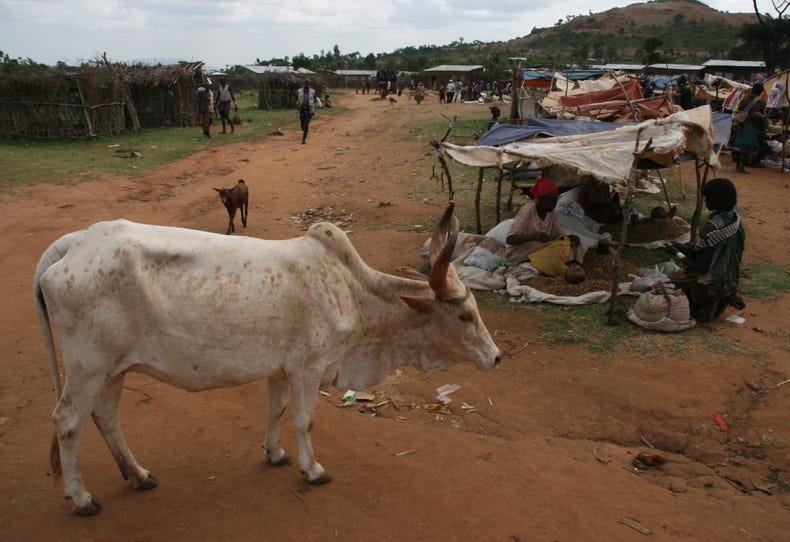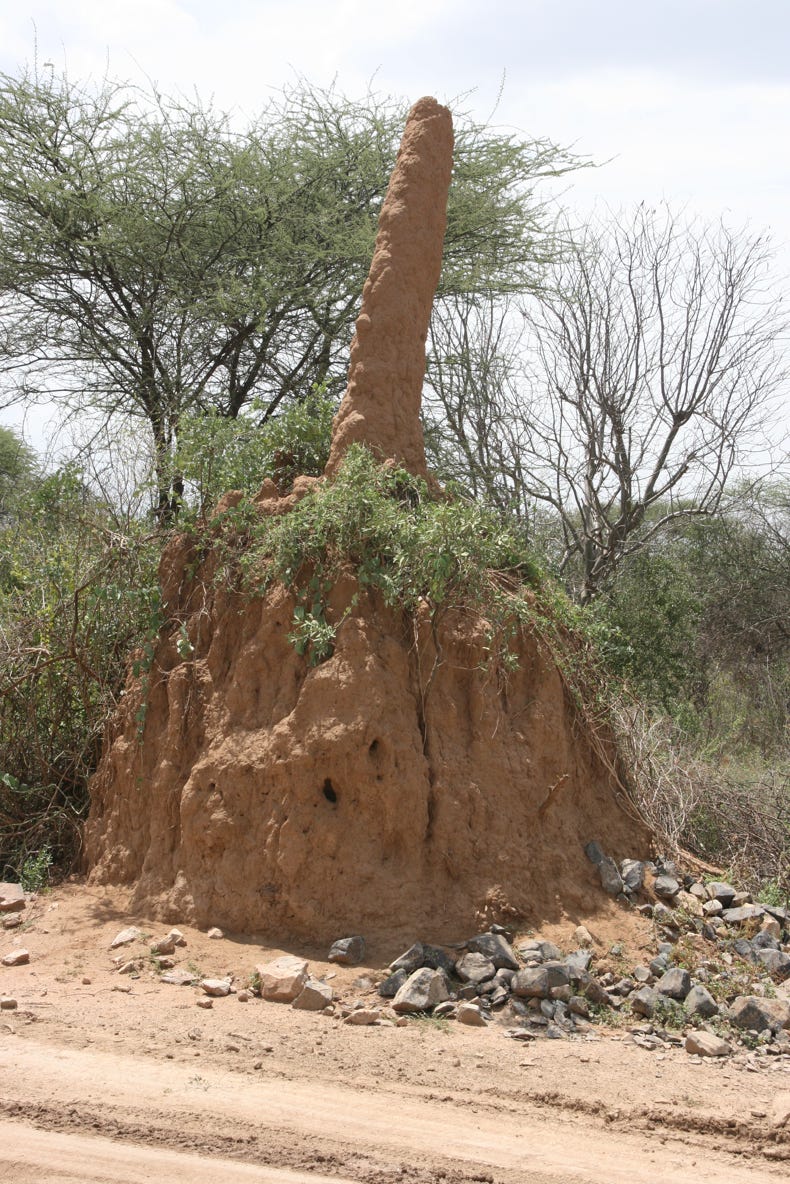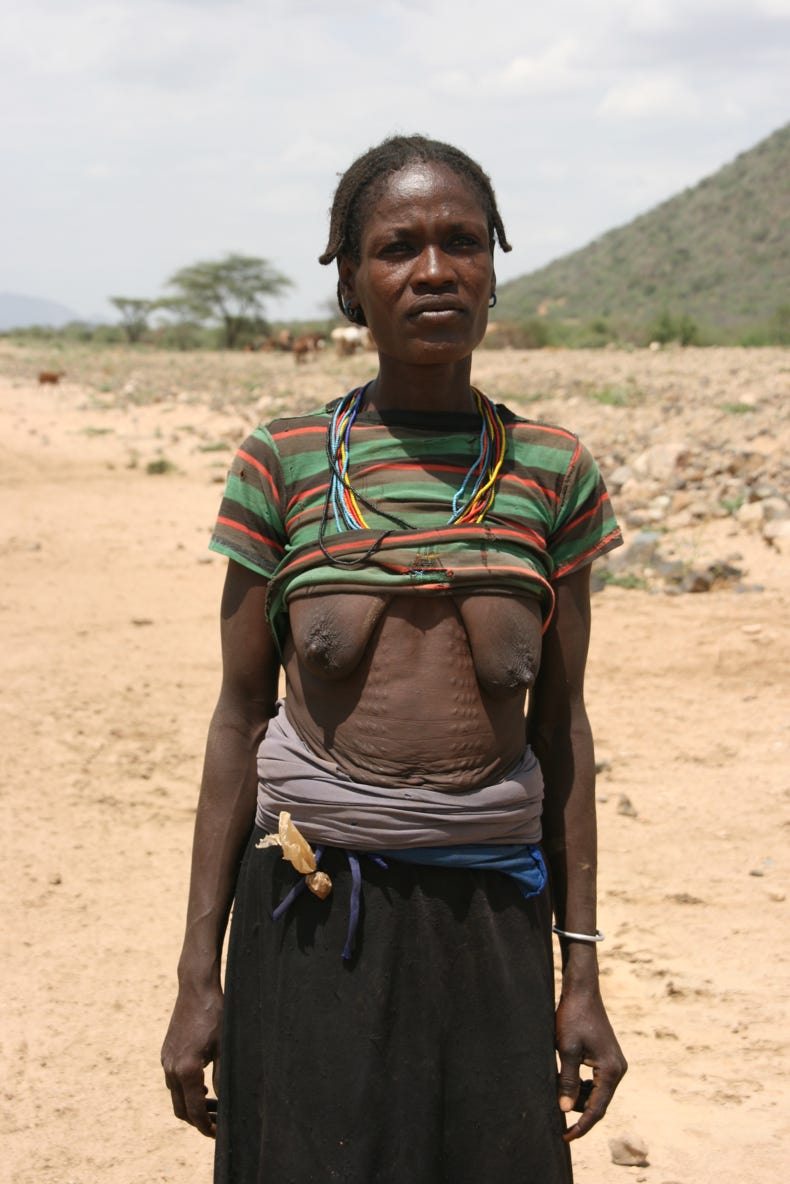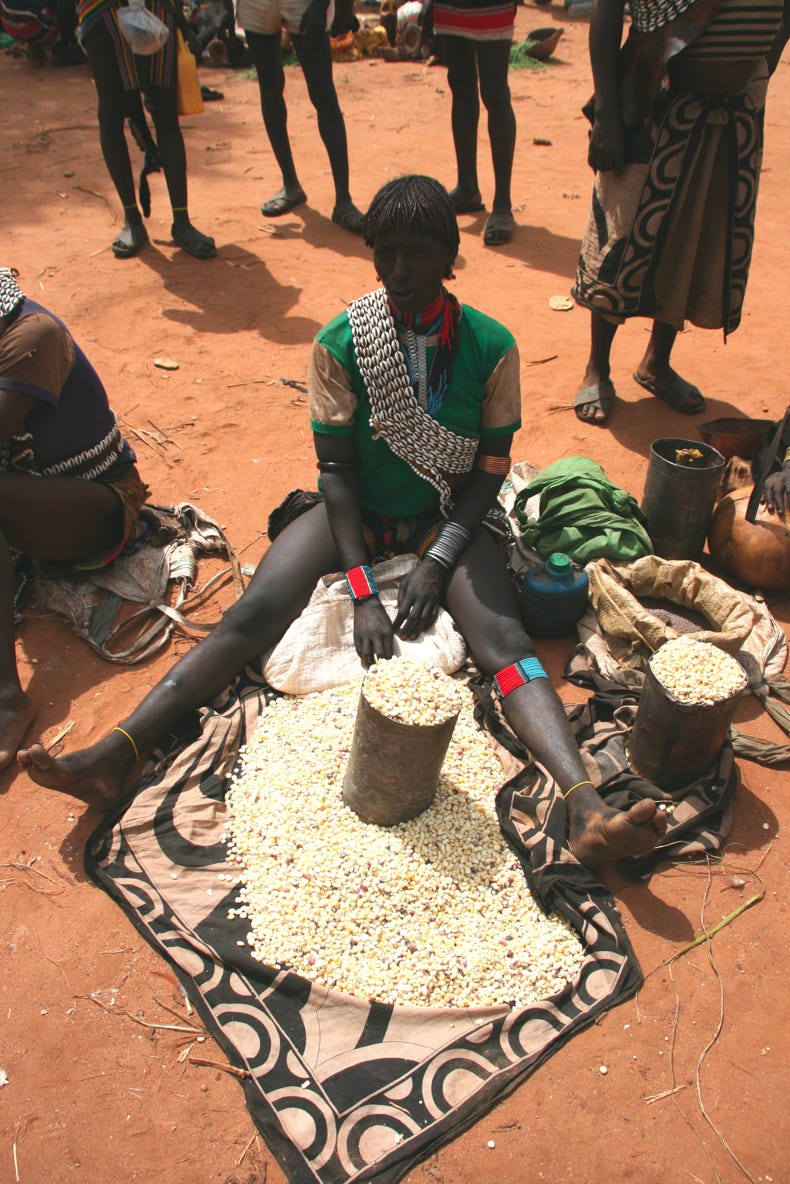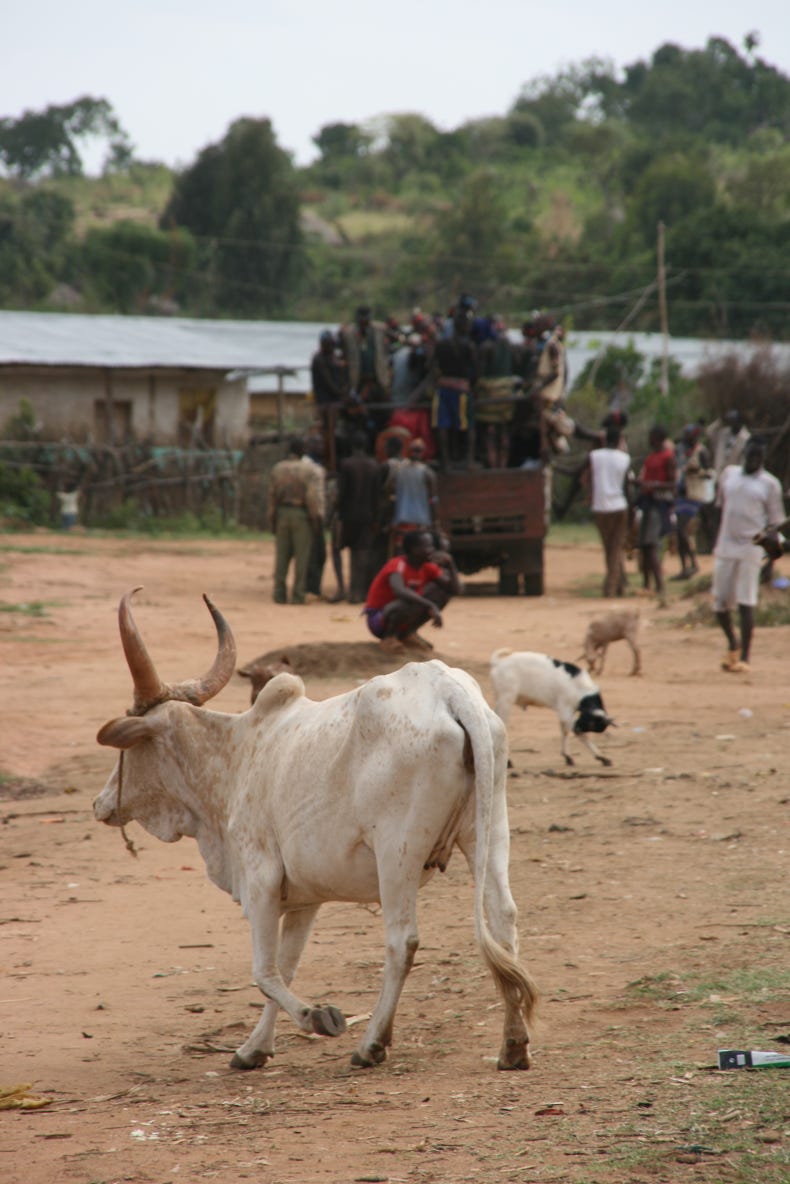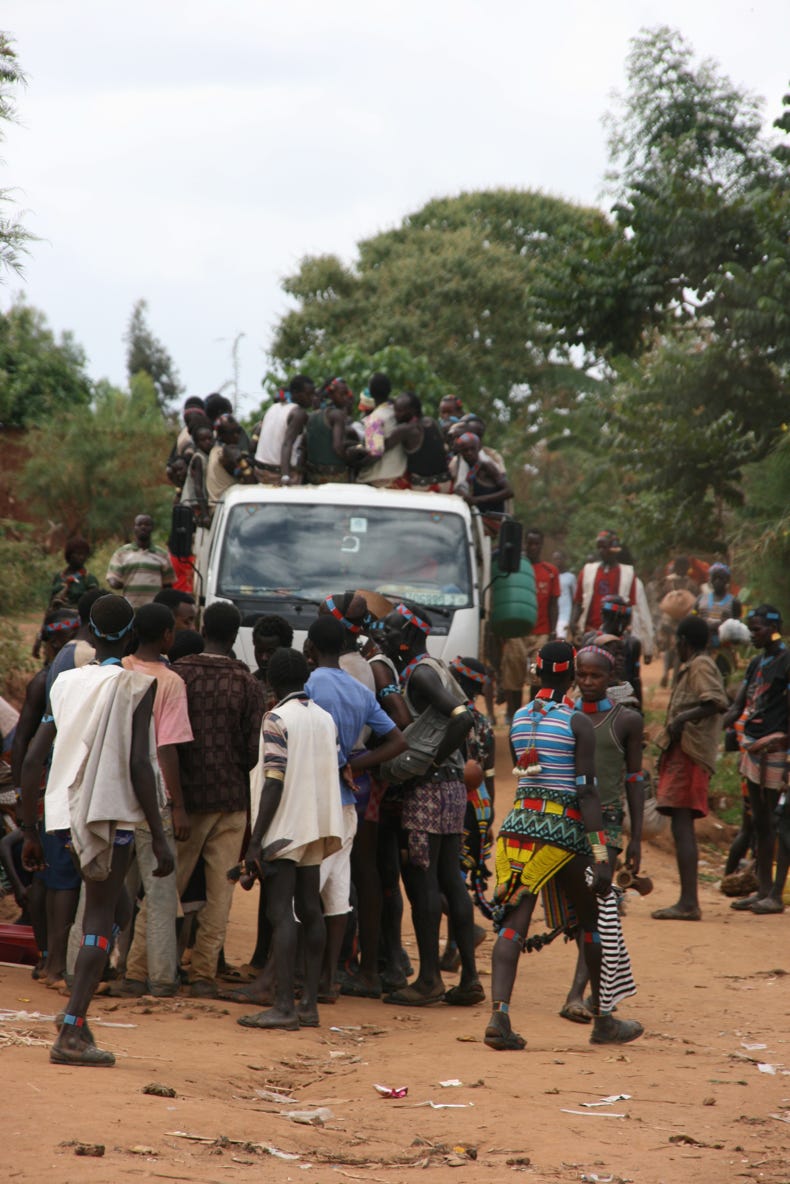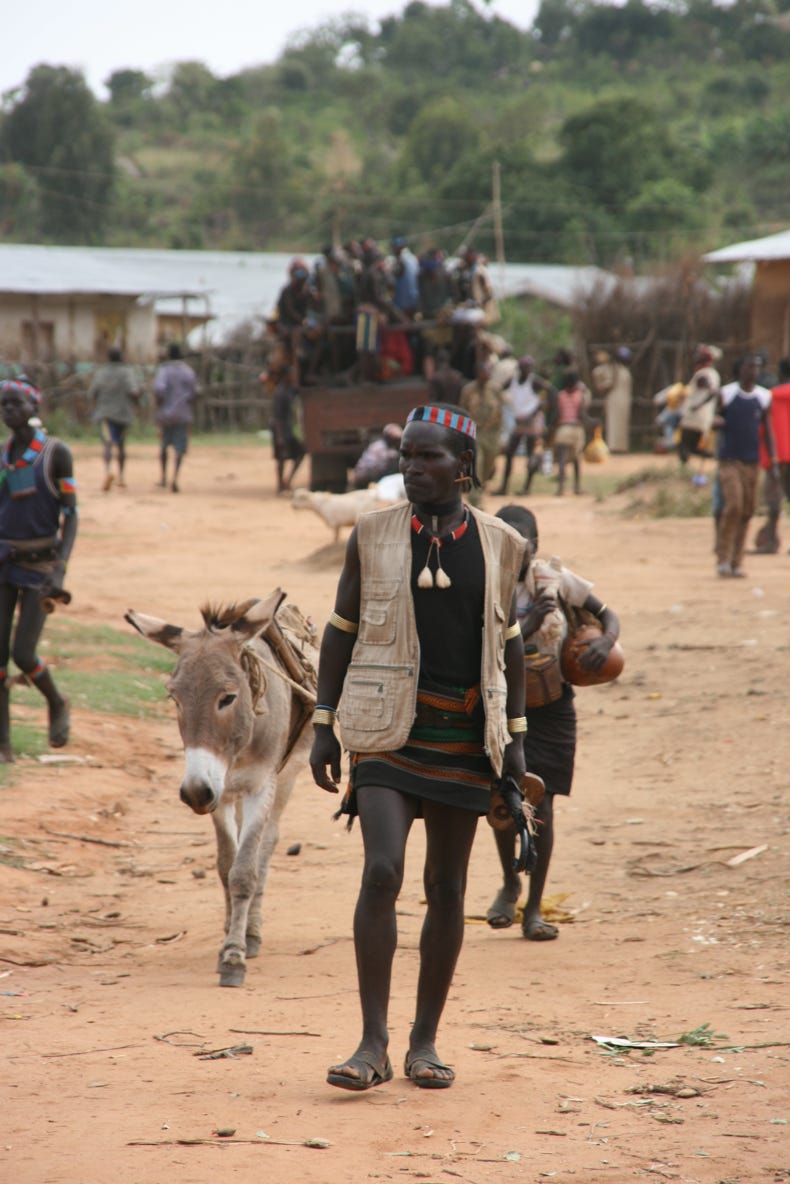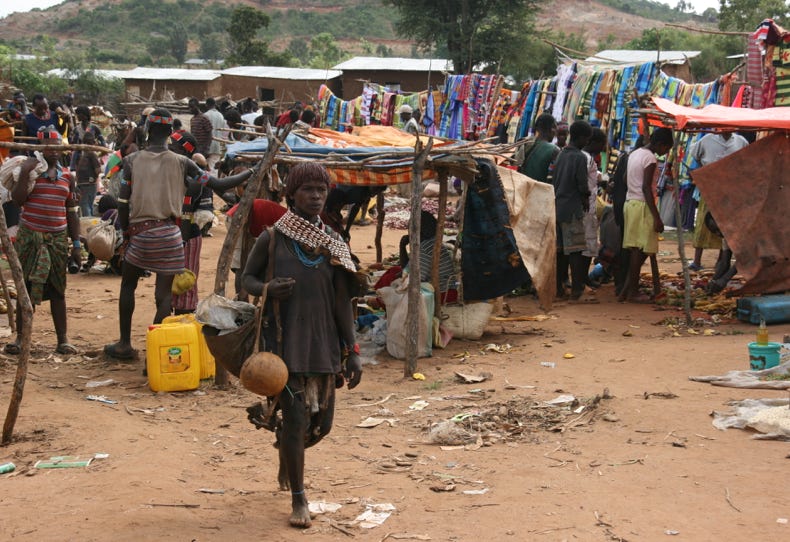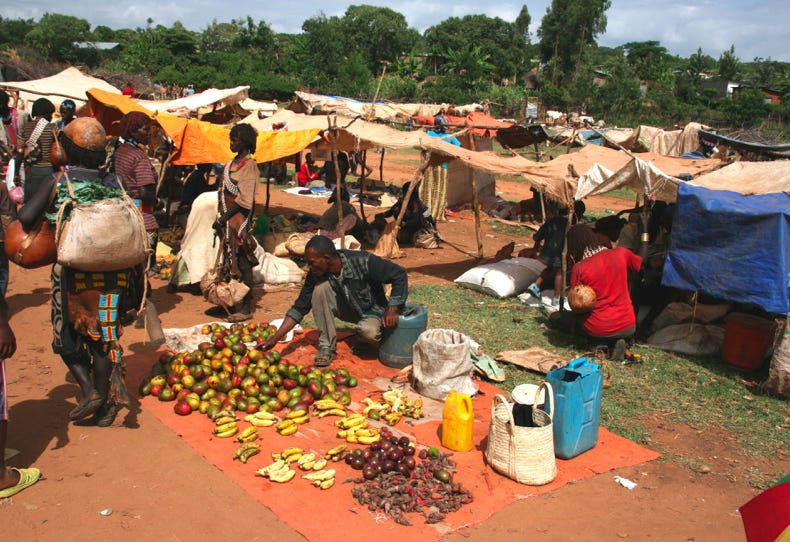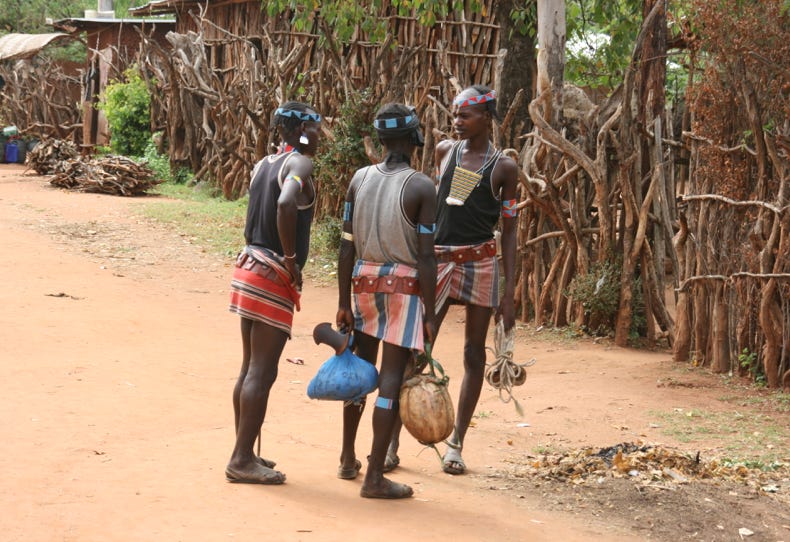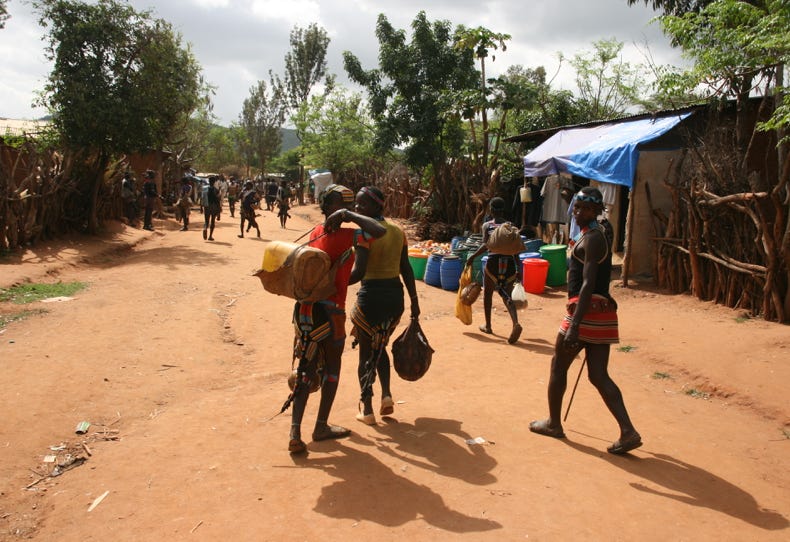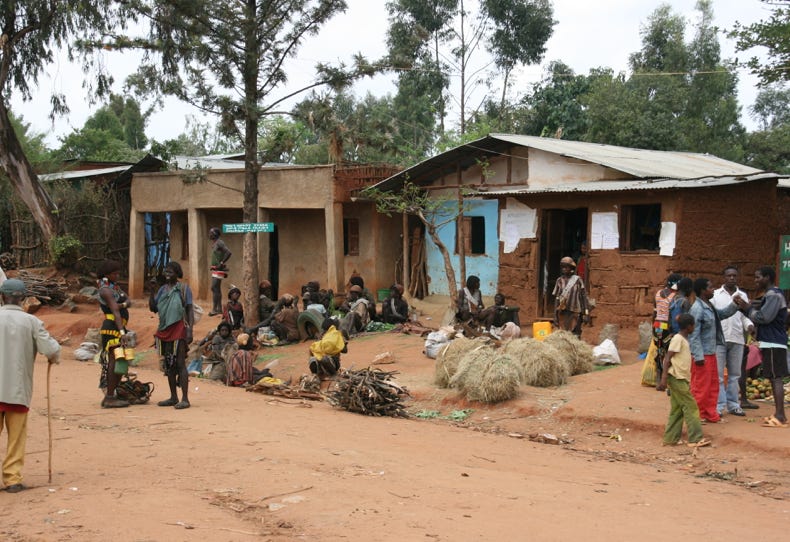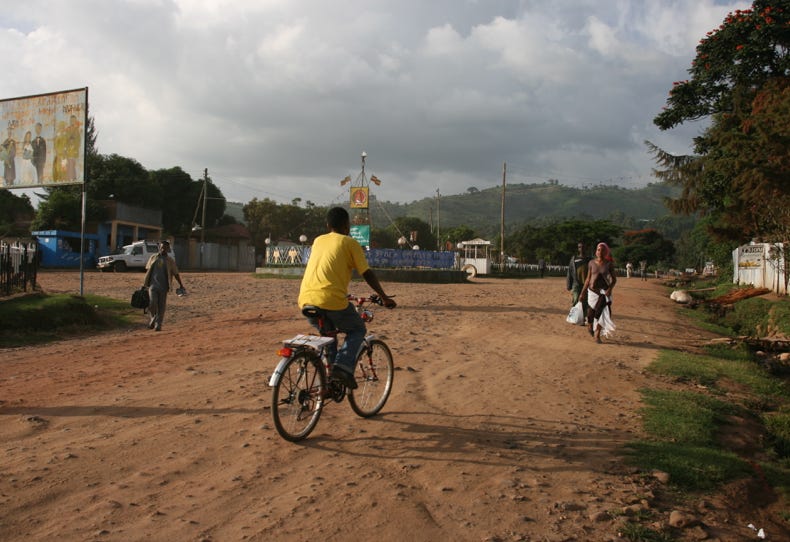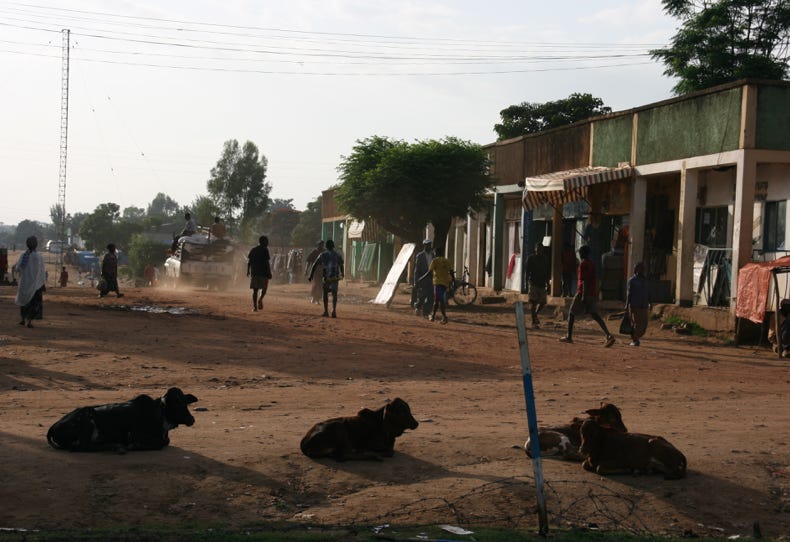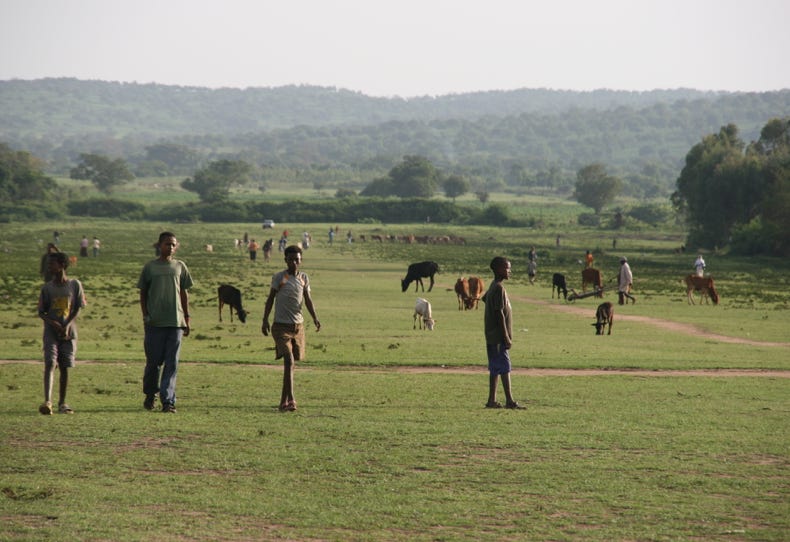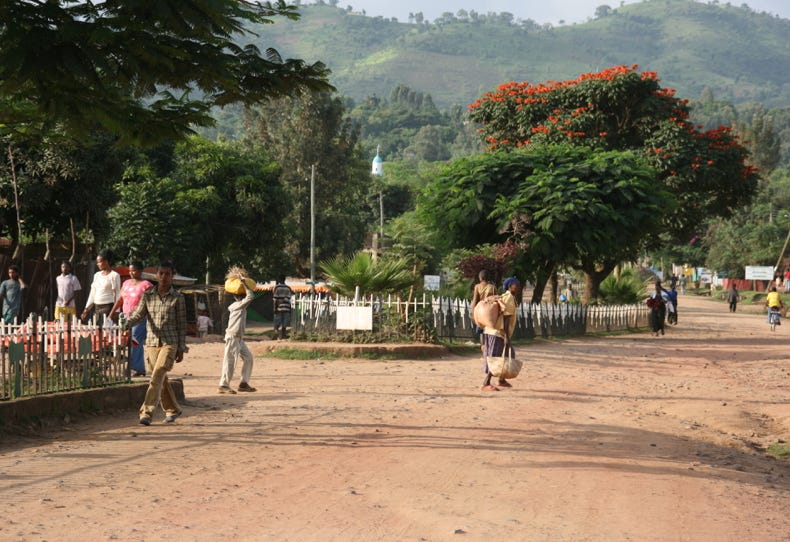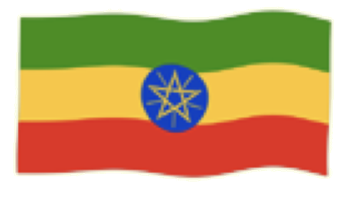

We woke this morning in Arba Minch to another electricity blackout. About two-thirds of our time in Arba Minch was spent without electricity, and given that most of the time the electricity was working was between about 11 pm and 5 am, it was difficult to make effective use of it (apart from leaving camera batteries or laptops connected before going to sleep in the hope that some electricity might flow during the night).
We slept in a little this morning, rising only at 7 am and wandering up to the dining terrace at 8 am. The photo at right shows the superb view we enjoyed over breakfast as we looked across the still waters of Lake Abaya. Like all the food we ate in Arba Minch, breakfast was fresh and full of flavour, and we savoured every mouthful of our freshly baked, crusty, coarse, lightly toasted bread and jam, cheese omelettes and coffee with milk.
The focus of today was driving to the west of Arba Minch into the Omo Valley and on to Jinka. I am not sure how many kilometres the journey comprised, but it took about six hours of driving along a mixture of some good sealed roads and a larger proportion of very rough, unsealed, corrugated roadway. We began the journey at an altitude of 1500 metres at Arba Minch, descended to 500 metres as we entered the hot, dry Omo Valley and then climbed again back to cooller weather at about 1400 metres altitude at Jinka.
The first part of the journey was very slow in spite of being on a good, sealed road. The reason was that we were sharing the road with thousands of head of cattle on their daily trip to pasture. Every morning, boys of school age (but who obviously do not attend school) drive cattle from their owners’ compounds to pastures to graze for the day. Every afternoon, the same boys bring the cattle back to their owners’ compounds. The highway is evidently the easiest transport route for the cattle - and it probably reduces the erosion that would occur if the cattle were moved along dirt pathways.
We drove without stopping until we reached the small village of Weyto, where we had lunch. There were very few buildings in this hot, dusty village apart from the restaurant where we ate. Andy and I had injera with lamb, although as we looked around, it seemed that we were almost the only ones eating a meal that could be called nutritious. Almost every other patron was chewing on “chat”, which were hallucinogenic green leaves picked from a bunch of stalks. Chat is obviously in plentiful supply in this area, and the restaurant seemed to to be doing a roaring trade in it. For the record, ‘chat’ is legal in Ethiopia, but not in most other countries.
After about 45 minutes driving from Weyto, we began climbing into the mountains that form the border between Ethiopia and Sudan, and about 45 minutes after that, we stopped in a small town called Key Afar. Key Afar is found in the area inhabited by the Banna tribe, a group that still dresses traditionally and raises cattle. As it was Thursday, the town’s weekly market was underway, with hundreds of Banna people together with people from the neighbouring Tsemay tribe.
The market was a riot of colour and activity. It was wonderful to see people who were obviously proud of their heritage and their culture showing off their best traditional dress, whether this was beads, hair colouring, animal skin dresses, feathers or other head-dresses, shawls made from shells, or every possible combination of the above.
There was an active cattle market, although it was only possible to get photos from a distance because the men explained that if we were to take photographs of the cattle it would make the blood of the cattle curdle, making it undrinkable (drinking cattle blood is a common practice in this part of Ethiopia). The shoes section was interesting, as all the shoes had obviously been hand crafted from old truck tyres - and everyone who was wearing shoes in the market was wearing this particular type of shoe. There were spices, fruits, vegetables, fabrics and pottery on sale - in fact, everything that a respectable Banna or Tsemay household might require. There were even bags of wheat being sold in “US Aid” bags, marked as being a gift “from the American people” that was “not to be sold or exported”. We stayed for about an hour before having a cool drink and driving on to Jinka.
Our hotel in Jinka was the Orit Hotel. I have come to measure the quality of hotels here in southern Ethiopia not by a rating system of stars, but by how many UN vehicles are parked in the grounds. By that criterion, the Orit is a 4- UN-vehicle establishment. Notwithstanding this grand ranking, it didn’t have either running water or a restaurant, so dinner tonight was vegetable soup and spaghetti in a nearby hotel just a short walk down the hill from the Orit.
The planned clothes washing will just have to wait for another day.
Jinka reminds me of some towns in Papua New Guinea, in that it is built around the airstrip runway. Unlike most towns in Papua New Guinea, however, Jinka’s airstrip is used as a football field and for grazing cattle. Fortunately, the only scheduled flights into Jinka are from Addis Ababa, and there are only two such flights each week. Hopefully this is a sufficiently simple timetable for the cattle to memorise so they can remember to move off to one side of the airstrip before the plane lands.
One feature of Jinka that is found in most Ethiopian towns, but to a greater extent here, is the organised operation of scams. In just about every Ethiopian town or city, local youths wait around the entrance gates of hotels to try and get foreigners to contribute to some personal version of a Nigerian e-mail scam. In Ethiopia it is usually a word perfect story about how the youth is a student who has no mother, and wants money for something such as a notebook (exercise book) for school or, more commonly, money for his school football team to buy a new football - “you can choose sir, 100 birr for a plastic one or 200 birr for a leather one”. The scam is well documented and seems to be very well organised in a smooth operation that might make the mafia envious.
This evening, Andrew and I wanted to go for a short walk. A young man had come up to walk beside us even before we left the hotel grounds. The conversation began the same way that it always does: “Hello. What is your name? Where are you from? Do you like Jinka?...” He then proceeded to point out some “sights” - ‘there is the airstrip, there is a shop...’. I told him politely that I wanted to be alone with my son to talk, at which point he said that it was not desirable for foreigners to walk around Jinka alone. I insisted, at which point he told me that I was ‘a very bad person’. I responded by telling him that in my country, older people are treated with respect by younger people, and perhaps if he showed more respect rather than intruding, he might be more successful in getting us to listen to him.
No sooner had he left us than two others took his place- “Hello. What is your name? Where are you from? Do you like Jinka?...” We successfully got them to agree to leave us alone, but about 30 seconds later, two younger boys - students - approached us: “Hello. What is your name? Where are you from? Do you like Jinka?...” Then there was a twist - “Do you like football?” I explained that I didn’t really like football, and that I wanted to be alone with my son, but they said they just wanted to ask me a question. They then took about 5 minutes to explain that they were students in a school football team, but they didn’t have enough money to buy a football. I could help them by paying them 100 birr for a plastic football or 200 birr for a leather football. I politely declined, explaining that I had heard an identical story in almost every Ethiopian city I had visited. They argued, somewhat unconvincingly I felt, that it is true that the story in other cities is a scam, but in Jinka it is genuine.
As Andrew and I returned to our hotel, we saw the two young boys together with the three others we had encountered all talking together in a circle, watching us as they did so. They have been hanging around the hotel gate ever since. Our driver tells us they are known as ‘the Jinka Boys’. I smile and wave each time each time I go through the hotel gate, and they all give me a big smile and wave back except for the one who thinks I am ‘a very bad person’. He just glares.
